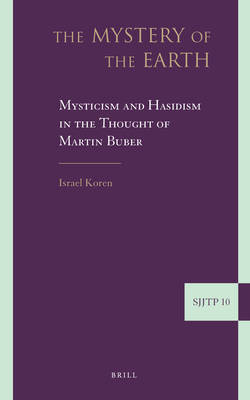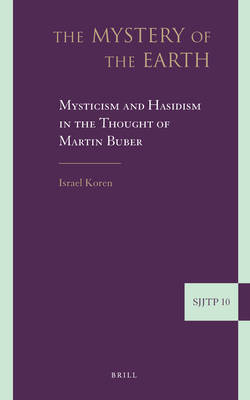
- Afhalen na 1 uur in een winkel met voorraad
- Gratis thuislevering in België vanaf € 30
- Ruim aanbod met 7 miljoen producten
- Afhalen na 1 uur in een winkel met voorraad
- Gratis thuislevering in België vanaf € 30
- Ruim aanbod met 7 miljoen producten
Zoeken
€ 283,95
+ 567 punten
Omschrijving
Challenging the prevalent view that in order to establish his "Dialogical" thought Martin Buber had to forsake his earlier "mystical" work, Israel Koren demonstrates instead that mystical paradigms serve as the foundation for Buber's dialogue and endow it with greater depth. While most scholars portray Buber's dialogical thought mainly in its Western and modern philosophical background, the author examines Buber's interpretation of Hasidic themes such as Devekut (attachment to God) among others, in order to establish that his dialogical writings evolved out of his interpretation of Judaism in general, his understanding of the Hasidic conception of the world and the mission of man in Hasidism in particular. Buber's work is therefore shown to be original mystical neo-Hasidic thought, which serves as a new link in the historical chain of Jewish mysticism.
Specificaties
Betrokkenen
- Auteur(s):
- Uitgeverij:
Inhoud
- Aantal bladzijden:
- 412
- Taal:
- Engels
- Reeks:
- Reeksnummer:
- nr. 10
Eigenschappen
- Productcode (EAN):
- 9789004181236
- Verschijningsdatum:
- 25/01/2010
- Uitvoering:
- Hardcover
- Formaat:
- Genaaid
- Afmetingen:
- 168 mm x 246 mm
- Gewicht:
- 816 g

Alleen bij Standaard Boekhandel
+ 567 punten op je klantenkaart van Standaard Boekhandel
Beoordelingen
We publiceren alleen reviews die voldoen aan de voorwaarden voor reviews. Bekijk onze voorwaarden voor reviews.











